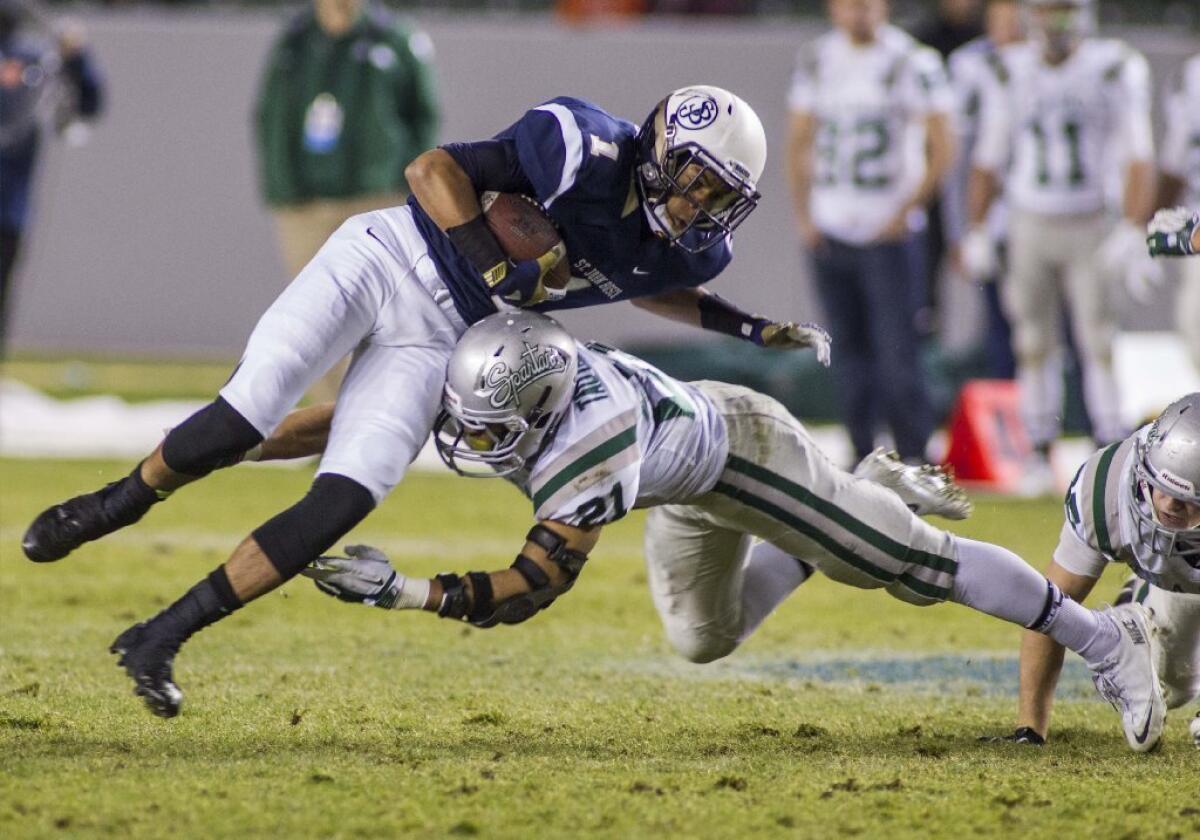Teen athletes with concussions shouldn’t do homework, study says

- Share via
Teen athletes with concussions should skip their homework.
It’s true, researchers say. Parents should have their concussed kids lay off high-level mental activity including homework and reading. But no video games or texting either! Restricting such activities could help kids with head injuries heal as much as five times faster.
Teenagers who continue intense cognitive activity may take more than three months to recover from symptoms. Those who take a break from all the stimulation? Twenty to 50 days, CBC News notes in a report on the study published Monday in the journal Pediatrics.
Researchers at Children’s Hospital Boston tracked 335 patients over the course of 21 months. They concluded that “cognitive rest” was best — for the first three to five days after the injury, no activities involving concentration or memory.
“Some cognitive activity” is OK; it’s just the “high-level” that’s detrimental, they told CBC News. The problem is, of course, that homework is considered high-level, and it’s hard to do well in school when you don’t do homework.
Troubling but perhaps just as disturbing is a look at the participants themselves and the head injuries they’d already suffered at a young age. The patients ranged in age from 8 to 23, with a mean age of 15, and 39% of the athletes had already suffered a previous concussion. Of those studied, “19% reported a loss of consciousness and 37% reported experiencing amnesia at the time of injury.”
Studies are piling up that show the serious consequences of head trauma in young athletes.
Teens may not even realize the damage that’s occurring. Small hits, ones that don’t slow an athlete at the time, may cause changes in brain structure and cognitive performance. Athletes may wind up having problems with memory, mood or mental performance in later years, as the L.A. Times’ Melissa Healy recently reported.
When it comes down to it, the issue is much larger than a teenager missing a few days of homework.
Follow me @AmyTheHub
All nighters: Very bad for the brain
Tweeting sharks warn of danger at Aussie beaches
Birth was a doozy; now polar bear twins relax at Munich zoo
More to Read
Sign up for Essential California
The most important California stories and recommendations in your inbox every morning.
You may occasionally receive promotional content from the Los Angeles Times.












